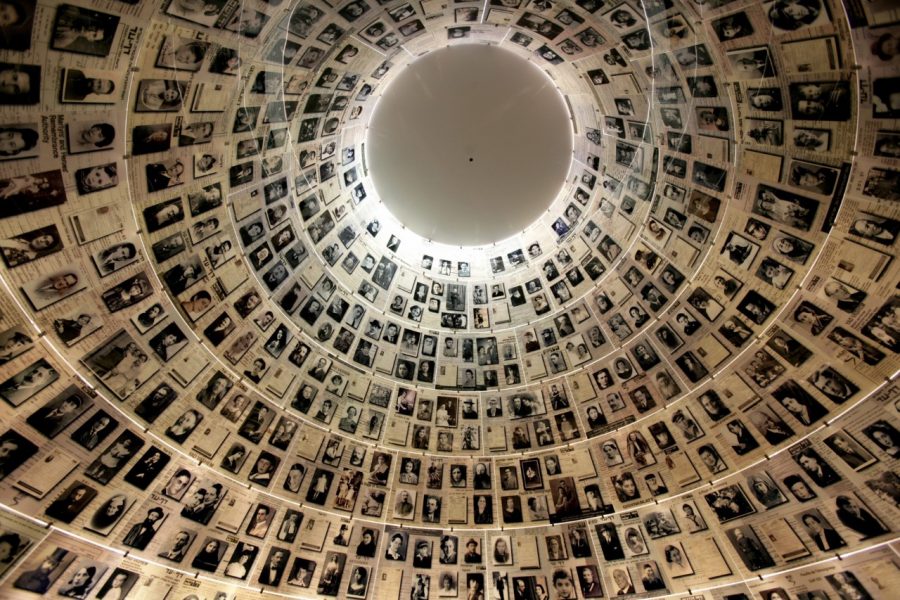Students reflect on Holocaust Remembrance Day
Lack of discussion of the Holocaust alarms students
International Holocaust Remembrance Day was on Jan. 27, but it was not discussed at school.
Students took to Instagram to express their disappointment. Many wanted the administration to at least acknowledge that the day was happening, and that many students are directly related to survivors and victims.
Junior Eva Goren said, “No one mentioning Holocaust Memorial day really threw me off. The holocaust is still relevant in people’s lives.”
Some language classes have done a unit on the Holocaust, but there was no school-wide announcement.
“I’m doing a unit in French class right now on the Holocaust, and we are getting a lot done in terms of talking about it. It’s unfortunate that we aren’t recognizing one of the biggest events of tragedy in the world especially because we recognize and celebrate so many other events,” said Junior Ali Carolus.
Senior Emma Friedman agreed that a simple PA announcement would have sufficed .
“Nobody wants to sit in a classroom for 40 minutes and receive alessononit,andIdon’tthinkthat’s what students were asking for. I think the issue here is acknowledgement. I think the Jewish people as a whole fear that the world will forget what they did to us.”
Junior Max Russo said that it would be healthy to talk about the Holocaust because of the amount of students that it would apply to.
He said “It was a little disappointing that the administration didn’t discuss it, but I’m sure they will bounce back and do something in the future.”
While the school has such a large Jewish population, many students feel a need to suppress that aspect of their identities.
“I guess I don’t walk into NT holding my Jewish identity that close to my heart, because nobody really talks about it; I don’t associate NT as a“Jewishplace”soIswitchmygears into a rather agnostic mindset,” said Friedman.
On a national level, the indifference to the day made many feel that the suffering that their reatives endured was invalidaded.
“Many kids in the Jewish community (including me) have grown up hearing stories from survivors, specifically relatives. By not talking about it I felt but that part of history is starting to become erased and the administration thinks it’s no longer relevant to high schoolers,” said Goren.
“I know that they took my family in the middle of the night and killed them. I’ve seen the pictures from Auschwitz, and I know that my grandfather had a number tattooed on his arm. That stuff is burned in my mind. I know that I won’t forget— butmanypeople,I’dsaytheaverage person, doesn’t think twice about it,” said Friedman.
According to the U.S. Department of State, “Anti-Semitism is a certain perception of Jews, which may be expressed as hatred towards physical manifestations of Anti- Semitism are directed toward Jewish or non-Jewish individuals and/or their property, toward Jewish community institutions and religious facilities.”
Six million Jews including 1.5 million children were murdered during the Holocaust, and not talking about it allows history to repeat itself.
Anti-Semitism is currently on the rise accross the U.S. The Anti- Defamation League’s most recent Audit of Anti-Semitic incidents in the United States recorded 1,879 acts in 2018, and cited a dramatic increase in physical assaults, including the deadliest attack on Jews in U.S. history.
According to the league’s website, “A wave of Anti-Semitic robocalls targeted Jewish schools, JCCs and synagogues, and a significant number of incidents occurred at K-12 schools and on college campuses.”
There have also been blatant displays of Anti-Semitism at New Trier. In 2018, Swastikaa were etched onto a toilet paper roll in an NT bathroom. Incidents such as these are why it is especially important that we school talk about the harm that spreading hate causes.
Only 11 states, including Illinois, require the Holocaust to be taught. This is problematic considering the number of shootings and instances of Anti-Semitism that have occured in the U.S.
“With more and more survivors dying every day because of old age, the first hand accounts of the horrors of the Holocaust are becoming less accessible. You have to teach The Holocaust because as soon as we start forgetting, history will repeat itself. The liberation of Auschwitz marked the end of a terrible genocide but notthe end of the suffering that would follow,” said Goren.
The only way to combat ignorance and prevent further genocide is to talk about the mistakes that were made in the past.
Friedman said, “The reason why it is important to talk about this disgusting tragedy is the same reason why it’s important to talk about slavery. Or the Japanese internment camps. Or any other horrific event where hatred and ignorance had reigned supreme. If we stop reminding people what those before us have done, then the ones after us will make the same tragic mistake. All of that pain, suffering, and trauma will have been in vain.”







































